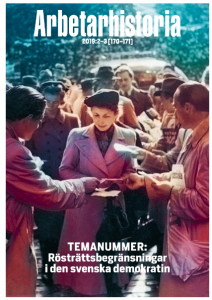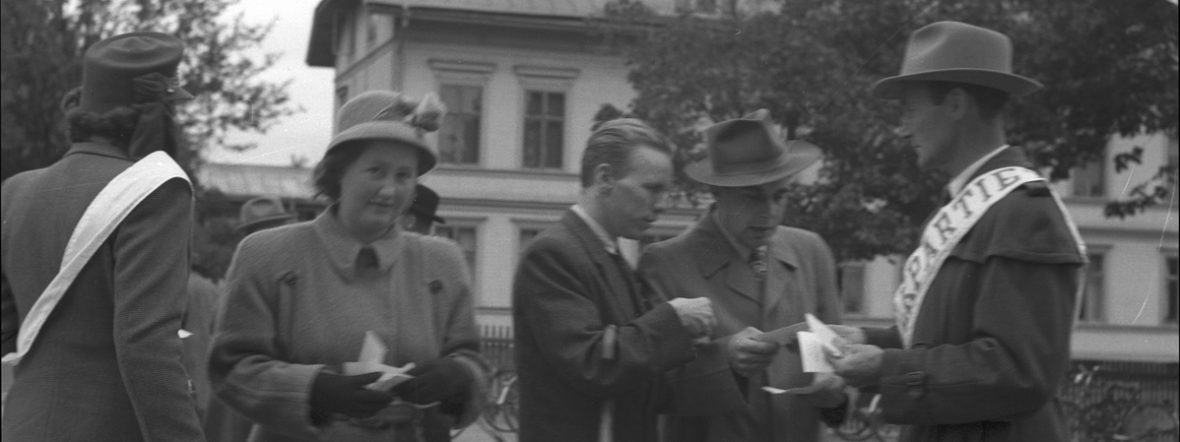
In 2021, Sweden will celebrate one hundred years of universal suffrage. As history is usually written, 1921 marks the end of the struggle for suffrage, but this project brings more nuance to that history. Rather than regarding the reform of 1921 as a definitive democratic breakthrough, it examines the events of the following century as a continuing but non-linear process of democratisation.
More specifically, it examines suffrage restrictions after 1921 at both the national and municipal level. Internationally, the expansion of the franchise has nearly always been combined with efforts to control the effects of an extended democracy, and Sweden is no exception to this pattern. Several groups were formally and/or practically excluded from voting after the introduction of “universal suffrage,” and some remain excluded.
The project conducts a broad empirical study of voting restrictions in legislation and practice and aims to contribute to international discussions of the meaning of democracy. Both qualitative and quantitative methods are used to structure the analysis around three clusters of research questions pertaining to (1) policy-making and legislation, (2) practices of inclusion and exclusion and (3) practical outcomes.
Participants and sub-studies
The project comprises several sub-studies, one of which is a quantitative analysis of all formal voting restrictions while the others are primarily qualitative analyses that focus on one or more restrictions motivated by age, citizenship, bankruptcy, poor relief, tax liabilities, imprisonment (or former imprisonment), declaration of legal minority and various administrative barriers. Seven scholars constitute the multidisciplinary research team:
Fia Sundevall is an associate professor of economic history at the Department of Economic History and International Relations, Stockholm University, and an affiliated senior researcher with the Swedish Labour Movement’s Archives and Library. Her sub-study addresses voting restrictions related to poor relief, bankruptcy and tax liabilities. She is also the project manager.
Annika Berg is an associate professor of the history of ideas at the Department of Culture and Aesthetics, Stockholm University. Her sub-studies address the declaration of legal minority and imprisonment/former imprisonment as obstacles to voting rights.
Martin Ericsson is an associate professor of history at the Department of History, Lund University. His sub-study examines national citizenship as a condition of voting rights.
Jonathan Josefsson is a political scientist with a PhD in child and youth studies. He is a teaching fellow and researcher at the Department of Thematic Studies – Child Studies, Linköping University. Bengt Sandin is a historian and professor of childhood studies affiliated with the Labour Movement’s Archives and Library. Josefsson and Sandin’s joint sub-study examines age as a suffrage restriction.
Mattias Lindgren holds a PhD in economic history and is a teaching fellow and researcher at the Department of Economic History and International Relations, Stockholm University. His sub-study involves a quantitative analysis of all formal restrictions on voting rights.
Julia Nordblad is an associate professor in the history of science and ideas at the Department of History of Science and Ideas, Uppsala University. Her sub-study addresses administrative voting obstacles, with special regard to nomadic groups.
